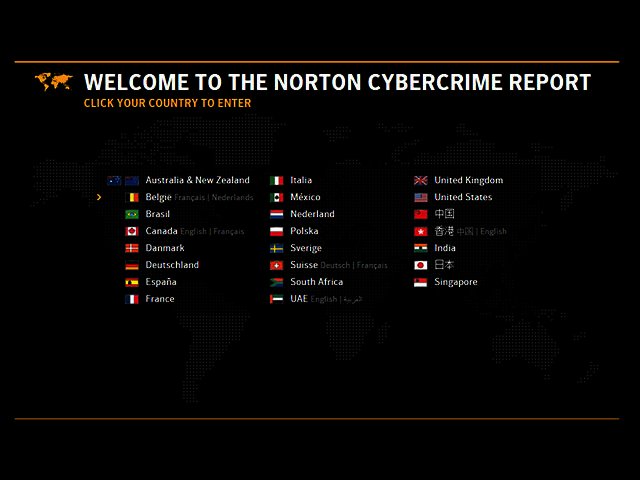Norton Online Family Report
By Staff Writer 12 January 2012 | Categories: sponsored content
 The latest edition of the Norton Online Family Report sheds new light on the realities and risks of growing up in the digital age. This year's report identifies the new issue of "cyberbaiting," a growing phenomenon where kids taunt their teachers, then capture the distressed reactions via cellphone videos. In addition, the report reveals a surprisingly high number of kids taking liberties with their parents' credit cards for shopping online.
The latest edition of the Norton Online Family Report sheds new light on the realities and risks of growing up in the digital age. This year's report identifies the new issue of "cyberbaiting," a growing phenomenon where kids taunt their teachers, then capture the distressed reactions via cellphone videos. In addition, the report reveals a surprisingly high number of kids taking liberties with their parents' credit cards for shopping online.
In South Africa, 78% of kids said that they have had a negative experience while online, with 61% reporting a serious negative experience, such as receiving inappropriate pictures from strangers, being bullied or becoming the victim of cybercrime.
The report also shows that kids across the world who are active on social networks open up more doors for content or situations that can be tricky for them to handle: globally 74% of kids on social networks find themselves in unpleasant situations online, compared to 38% who stay away from social networking. Parents are setting ground rules for online use, which helps kids have a more positive experience. The Norton Online Family Report shows that in South Africa, for those households where rules exist, the "good kids" who follow the rules stay relatively safe, with 68% having had a negative experience online, the percentage increases to a staggering 95% among rule-breakers.
Teachers at risk of cyberbaiting
One of the more shocking examples of using social networks for bad behavior is cyberbaiting, where students first irritate or bait a teacher until he or she cracks, filming the incident on their mobile device so they can post the footage online, embarrassing the teacher and the school. In South Africa, 30% of teachers have personally experienced or knows another teacher who has experienced this phenomenon.
Perhaps because of cyberbaiting, 69% of South African teachers say being friends with students on social networks exposes them to risks. Still, 31% continue to "friend" their students. Only 55%, however, say their school has a code of conduct for how teachers and students communicate with each other through social media. 87% of teachers call for more online safety education in schools, a position supported by 80% of parents.
Raiding mom's digital purse
Globally, 23% of parents who let their kids use their debit or credit card to shop online say their kids have overspent. 30% of parents, however, say that their child has used their debit or credit card to shop online without consent. And more than half of parents (53%) who let their child shop online using their online store account reported that their child has used it without permission.
But saving money isn't the only reason to set clear guidelines about online shopping and safe internet behaviour. In South Africa, 90% of parents whose children have been the victim of cybercrime have also been a victim themselves - an increase from the average of 84% among South African online adults. (Norton Cybercrime Report, 2011)
"Parents and teachers play an enormous role in keeping kids - and themselves - safe online, and this year's Norton Online Family Report shows a real need for further education," said Marian Merritt, Norton Internet Safety Advocate. "While 79% of South African parents say they talk to their kids about online safety, 57% still secretly check their children's online use and 37% look at their social network use behind their backs. Having an open dialogue with kids in a safe environment like at home or school can be much more effective, along with arming children with the tools they need to stay safe. "The research into children's online activities by the world's largest internet security firm also uncovered:
- Only 5% of parents in South Africa say they have no idea what their children do online, but 10% of children in SA think their parents have no idea about their online activities
- 34% of SA kids say they sometimes stop what they are doing online if they know their parents are watching
- 72% of SA parents have house rules about how much time their kids can spend online and only 49% have set parental controls on the family computer
- 25% of kids in SA have experienced a negative situation on their mobile phone, 10% had been bullied by mobile phone and 5% said they had experienced other cybercrime/negative situations on their phone
- Of mobile users in SA, aged 12+, 12% say they'd received sexually suggestive or nude images of someone they didn't know and 7% had received them of someone they did know.
For more tips on how to keep your kids and yourself safe online, please visit: www.norton.com/familyresources. For more findings from the Norton Online Family Report globally and by country, please visit: www.norton.com/cybercrimereport.

Most Read Articles

Have Your Say
What new tech or developments are you most anticipating this year?



